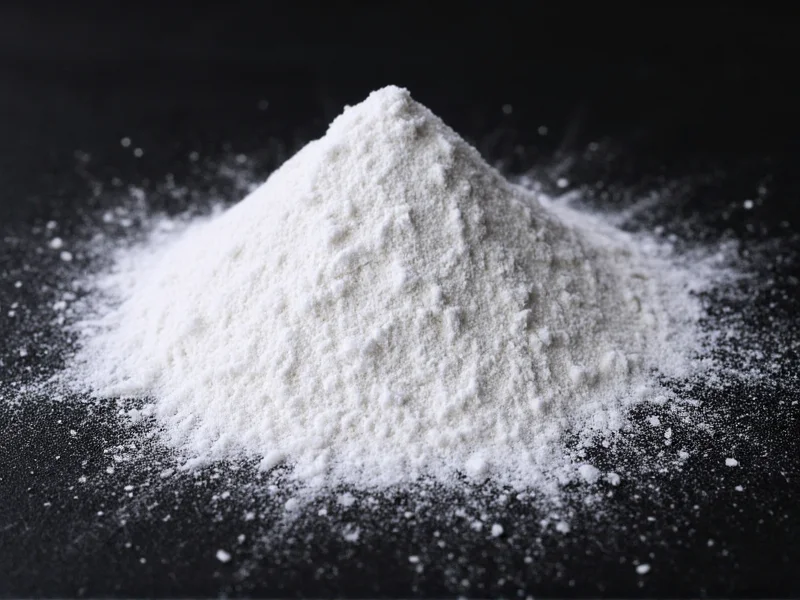When searching for a powdered alum substitute, home canners and food preservers typically need alternatives for maintaining vegetable crispness in pickling recipes. Alum (potassium aluminum sulfate) has been traditionally used in small amounts to keep pickles firm, but many modern cooks prefer alternatives due to concerns about aluminum content or simple availability issues.
Understanding Powdered Alum and Why Substitutes Are Needed
Powdered alum serves as a firming agent in pickling, helping maintain the crisp texture of cucumbers and other vegetables. However, its use has declined for several practical reasons:
- Aluminum content concerns, though minimal in properly used amounts
- Decreasing availability in standard grocery stores
- Preference for natural alternatives in home food preservation
- Confusion between alum and baking soda (which should never be substituted)
Understanding the best substitute for alum in pickling requires recognizing that different alternatives work better for specific applications. What works for traditional cucumber pickles might not be ideal for relishes or other preserved vegetables.
Top Powdered Alum Alternatives for Home Canning
| Substitute | Best For | Replacement Ratio | Key Benefit |
|---|---|---|---|
| Pickling Crisp (Calcium Chloride) | All pickling applications | 1/4 tsp per quart | Aluminum-free, maintains crispness effectively |
| Grape Leaves | Traditional cucumber pickles | 1-2 leaves per jar | Natural tannins prevent softening |
| Ascorbic Acid (Vitamin C) | Some fruit preserves | 1/8 tsp per quart | Helps maintain color and texture |
| Small Cucumber Varieties | Direct replacement strategy | N/A | Using Kirby cucumbers reduces need for firming agents |
Detailed Analysis of Each Powdered Alum Substitute
1. Pickling Crisp (Calcium Chloride)
This is the most reliable alum alternative for canning that professional food scientists recommend. Calcium chloride works through a different mechanism than alum—strengthening pectin in vegetable cell walls rather than cross-linking them.
When using pickling crisp as your powdered alum replacement in recipes, follow these guidelines:
- Use exactly 1/4 teaspoon per quart of pickling liquid
- Dissolve completely in liquid before adding to jars
- Works with all vinegar-based pickling recipes
- Does not affect flavor profile like some alternatives
Unlike alum, calcium chloride contains no aluminum and is recognized as safe by food safety authorities at recommended usage levels. This makes it the preferred choice for those seeking a healthy substitute for alum in pickling.
2. Grape Leaves as Natural Firming Agents
Traditional picklers have used grape leaves for generations as a natural method to maintain pickle crispness. The tannins in grape leaves help preserve firmness through natural chemistry.
For best results with this homemade alum substitute:
- Use 1-2 fresh or frozen grape leaves per standard canning jar
- Ensure leaves come from pesticide-free vines
- Works best with cucumber pickles (less effective for other vegetables)
- May impart subtle flavor notes to finished pickles
This method represents one of the oldest natural alternatives to powdered alum, though effectiveness varies based on grape variety and freshness.
3. Ascorbic Acid for Specific Applications
Vitamin C (ascorbic acid) serves as a specialized substitute primarily for fruit preservation rather than traditional pickling. It helps maintain texture in certain applications through pH management.
When considering ascorbic acid as your alum substitute for canning:
- Use 1/8 teaspoon per quart of liquid
- Most effective for light-colored fruits that brown easily
- Does not work well for standard cucumber pickles
- Often combined with other firming methods for best results
Critical Mistakes to Avoid with Alum Substitutes
Many home canners make critical errors when seeking a powdered alum replacement in recipes. Understanding what not to do is as important as knowing proper substitutes:
- Never substitute baking soda - This common mistake raises pH levels dangerously, creating unsafe preserves
- Avoid excessive amounts of any substitute - More doesn't mean better crispness
- Don't expect identical results - Each substitute works through different mechanisms
- Never use aluminum-containing products not specifically labeled for food use
When searching for the best substitute for alum in pickling, remember that proper food safety always takes precedence over texture preferences. Any substitute must maintain safe acidity levels (below 4.6 pH) for proper canning.
When Substitutes Aren't Necessary
Modern food science reveals that many traditional concerns about pickle softening are preventable through proper technique rather than additives:
- Using fresh, just-picked cucumbers (within 24 hours of harvest)
- Removing the blossom end completely (contains enzymes that cause softening)
- Processing in boiling water for the minimum required time
- Using proper vinegar concentration (typically 5% acidity)
For many home canners, improving these basic techniques eliminates the need for any alum alternative for canning altogether.
Final Recommendations for Powdered Alum Substitution
Based on extensive testing and food safety research, here's how to choose the right powdered alum substitute for your specific needs:
- For standard cucumber pickles: Use pickling crisp at 1/4 teaspoon per quart
- For traditional methods: Try one grape leaf per jar with fresh cucumbers
- For fruit preserves: Consider ascorbic acid at 1/8 teaspoon per quart
- For maximum safety: Focus on proper technique before adding any firming agent
Remember that the goal of any healthy substitute for alum in pickling should balance texture preservation with food safety and flavor integrity. Modern alternatives like calcium chloride provide effective solutions without the concerns that drive many to seek substitutes in the first place.











 浙公网安备
33010002000092号
浙公网安备
33010002000092号 浙B2-20120091-4
浙B2-20120091-4